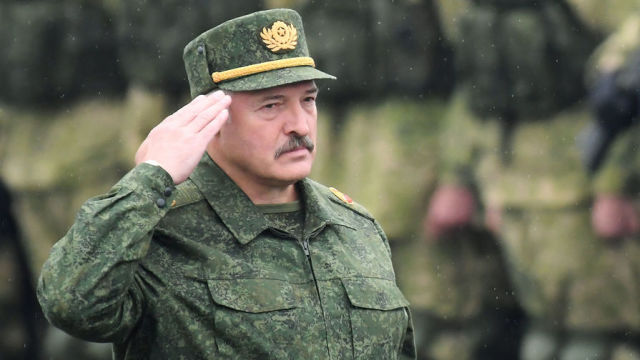Lukashenko approved a plan for the use of a regional grouping of troops of Belarus and the Russian Federation
Russia and Belarus have updated the plan for the use of a regional grouping of troops of the two countries, which has already been supported by the Belarusian leader Alexander Lukashenko. This decision was due, as explained in Minsk, to the actions of NATO near the borders of Belarus. Earlier, Moscow and Minsk repeatedly talked about the activation of NATO at the Eastern borders of the Alliance.
President of Belarus Alexander Lukashenko supported the plan to use the regional grouping of troops of his country and the Russian Federation, which was created within the framework of the Union state, said the chief of the General staff of the Belarusian Armed forces Alexander Volfovich after the report to the head of state.
After that, the corresponding plan will be submitted to a meeting of the Supreme state Council of the Union state of Russia and Belarus, said Volfovich.
According to him, the options for action were updated based on the information that is currently available, including the order of engagement and areas of use of formations and units "that come from the Russian side to perform joint tasks." "In the past, they were in some areas, in this plan, taking into account the forecast of the situation, there are several other areas, tasks," he said.
The chief of the General staff of the Belarusian armed forces explained that the joint grouping of troops is a mechanism of strategic deterrence. According to him, it was created to reflect large-scale aggression against the Union state.
He drew attention to the fact that Belarus is a peaceful state and considers only issues related to the country's defense. At the same time, the Republic foresees and evaluates how likely opponents can act.
"No matter how much the US leadership and now the NATO leadership lull us to sleep. They say, justifying themselves, that no, we just train like that. But we are military people. Even if we train, it means for something. So we can't be complacent. Even if we have a really powerful army behind us, as they say, the second army in the world, very powerful. But, nevertheless, we cannot calm down, " the Belarusian leader stressed.
In early December, he claimed that a military group was being created in NATO to seize the Western lands of the Republic. During the session of the CSTO collective security Council, he noted that external interference was the reason for the aggravation of the situation in Belarus. "The matter, I quote ,is" in the historical belonging of the Belarusian lands to Poland". This is stated already in open mode. Can I, as President, and Belarusians, agree with this? It turns out that where we live today, we do not own these lands. Clear to whom. They are working in this direction, " Lukashenka said.
Prior to this, the President reported that the intelligence services of Belarus and Russia found centers of American intelligence services near Warsaw and in Kiev. "The United States-they created a center near Warsaw, and now they have created it in Kiev. Okay, I would say, but we with the Russians, our intelligence and Russian worked, saw these centers. Not a single pole is there. This is just the territory. All Americans are sitting there-smart, talented, capable people, " Lukashenko said during a visit to Gomselmash.
At the end of October, at a meeting with the Director of the foreign intelligence Service (SVR) of Russia Sergey Naryshkin in Minsk, he said that the situation around the Union state is not easy and the allies need to respond to challenges together.
Naryshkin then drew attention to the fact that after the start of mass protests in Belarus, the United States increased funding for the anti-government forces of the Republic several times. "This money was used to form a network of" independent bloggers" and information accounts in social networks, prepare activists for street actions, " the SVR Director emphasized.
As the Belarusian President noted, Moscow regularly informs the security services of his country and himself about the situation. Belarus, according to Lukashenko, takes the data very seriously, so the parties have "a lot of joint work".
Kristina Sizova


